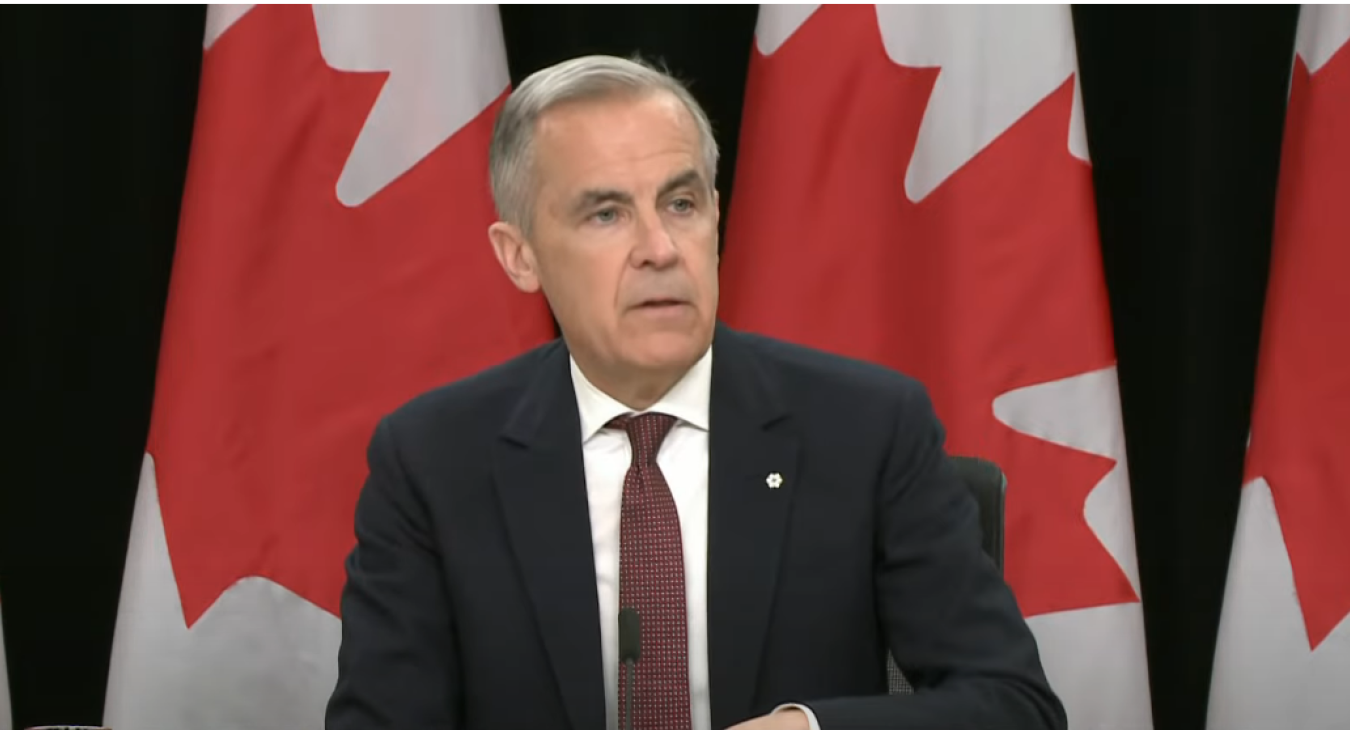Prime Minister Mark Carney is pledging to embark on the “biggest transformation” of Canada’s economy since the end of World War II as he outlined his government’s priorities on Friday after winning a minority mandate from Canadian voters.
“This is a time for ambition, for boldness, for meeting this crisis with the overwhelming positive force that is Canada united,” he said in Ottawa at his first news conference since Monday’s election. “This is a time to build, and my government is getting to work, and building. Build big, build boldly, and build now.”
Carney said his top priority is meeting with U.S. President Donald Trump on Tuesday in Washington. Carney said the agenda for the meeting will focus on U.S. tariffs against Canada, as well as the broader relationship between the two countries.
“I go there expecting … difficult but constructive discussions; that’s the spirit of the conversations that the president and I have had,” Carney said. “You go into these meetings well prepared, understanding your counterpart’s objectives and always acting in Canada’s best interests.”
At the same time, as the U.S. trade relationship has changed, Carney has pledged to make Canada’s economy more resilient. Carney’s Cabinet is scheduled to be sworn in the week of May 12, and King Charles III is scheduled to deliver a speech from the throne during the reopening of Parliament on May 27.
Carney said passing his promised middle-class tax cut, which would save two-income families $825 a year by cutting the marginal tax rate on the lowest income tax bracket by one percentage point, would be the government’s first priority. Carney said he expects to be able to do so by July 1.
Carney also pledged to remove all federal barriers to domestic trade by Canada Day and continue discussions, urging provincial leaders to do the same.
Carney said his government will continue its strategy of trade diversification by engaging with other global trading partners besides the U.S.
“We will strengthen our relationships with trusted trading partners and allies,” he said. “Canada has what the world needs, and we uphold the values the world respects.”
On immigration, Carney said he intends to cap the total number of temporary workers and international students at less than five per cent of the population by the end of 2027.
“That’s a sharp drop from the high of 7.3 per cent, and it will help ease the strain on housing, public infrastructure and social services,” he said.
In its fiscal plan, the Liberal government said it would split operating and capital spending into two separate budget categories, and Carney promised to balance the operating budget over the next three years by constraining the civil service, ending duplicate programs and improving public sector productivity. The deficit is projected to reach $62.3 billion this fiscal year.
“Daily government spending, the government’s operating budget has been growing at an unsustainable nine per cent each year,” Carney said. “We’ll get that down to two percent, which is less than half the average nominal growth rate of the economy.”
Carney also highlighted the economic impacts already being felt as a result of the trade war with the U.S.
On Friday, Unifor announced that General Motors was laying off 750 workers at its Oshawa Assembly plant, with the plant moving from three shifts to two shifts starting in the fall. Carney offered his “deepest sympathies to them and their families,” adding that all revenue from Canada’s retaliatory tariffs, estimated at $20 billion, would go to the affected workers.
He said his government would ensure companies worked in “true partnership” to keep jobs and investment in Canada, and warned that “there will be consequences” for those who don’t.
